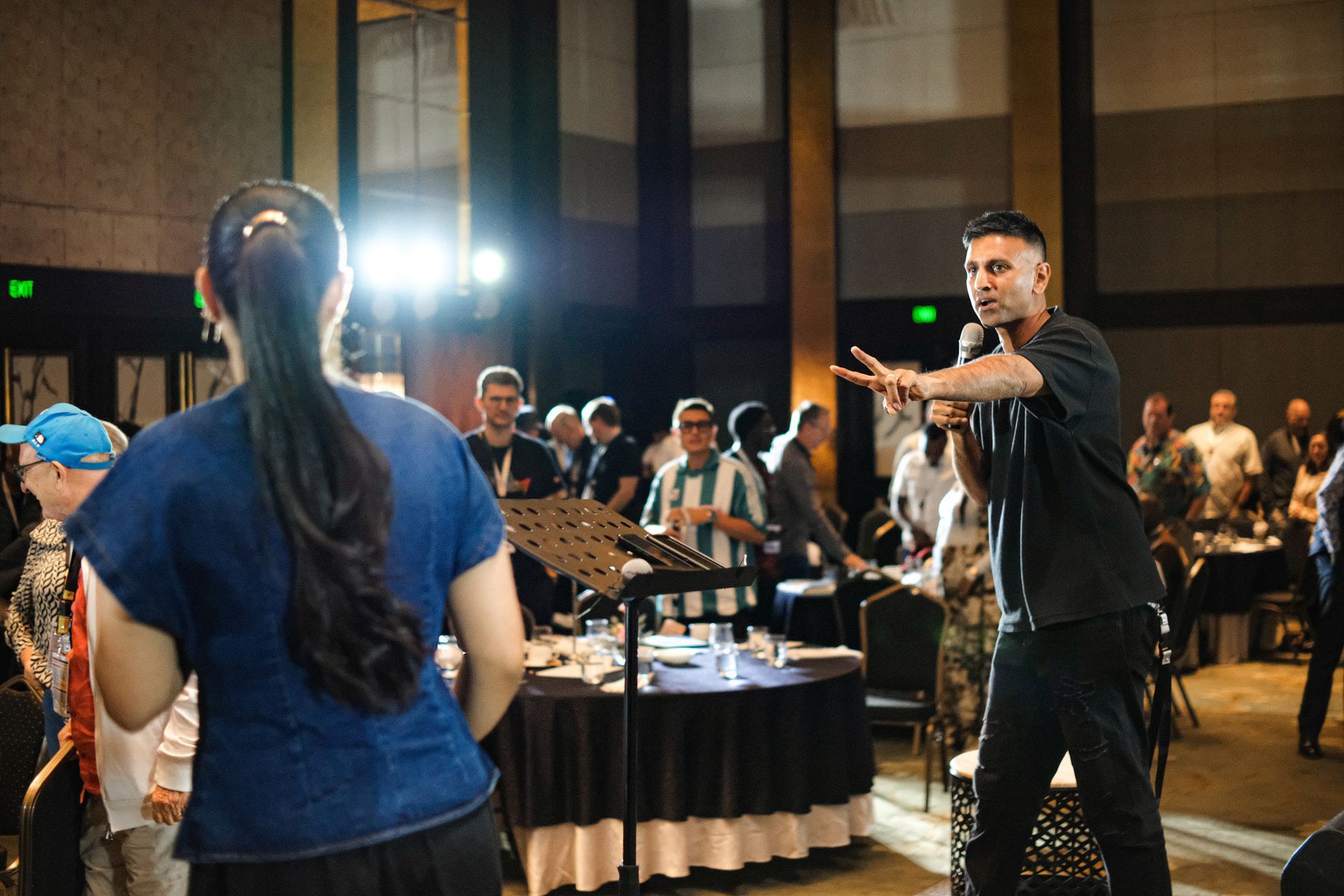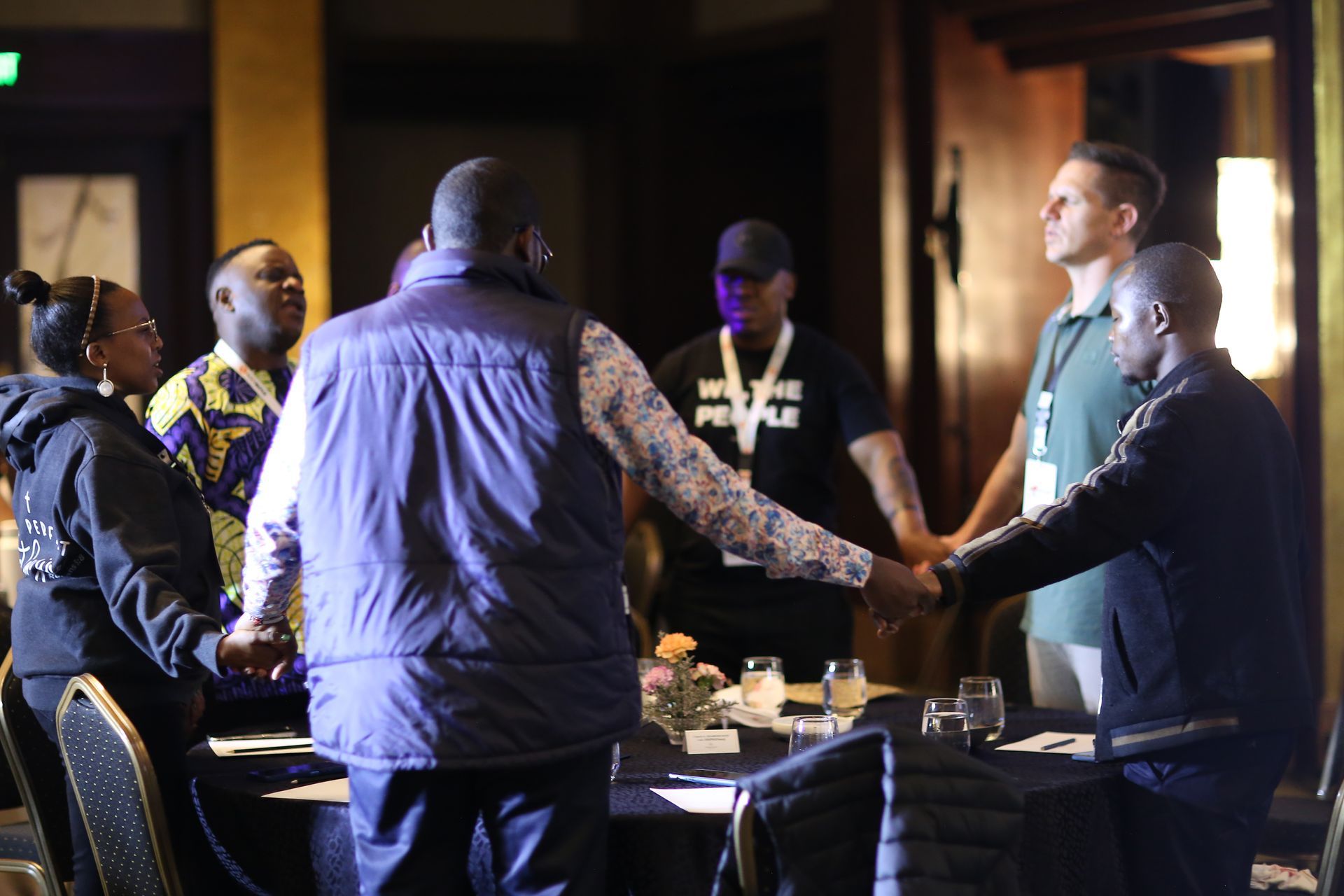An engagement model for unity
Share this blog: Together turning around the trajectory of Christianity in the next generation!
Individualism and social cohesion
I grew up with this gibe in my native community. If you put five of us in a room for an hour, we will establish six different church denominations and seven sports teams that compete to the point of death. Such a community will do well in a world that celebrates individualism, that is, a world that emphasizes personal responsibility and self-reliance. However, in the place that I call home, individualism has proven itself incapable of healing our fractured society.
The tenuous social fabric of my country of birth, South Africa, has come undone in a post-COVID-19 world. This is also the current reality for many other countries around the globe.
In 2021 social unrest further slashed South Africa’s frayed social compact. My twenty-something-year-old son Andreas asked me this question, “Dad, our country is burning, what are we going to do?” I responded, “Son, I don’t know how to repair all the tears, but I do know that it will require all our combined effort.” At the time, the collective efforts of the Christian community in South Africa dispatched 600 tons of food to 52 000 people in two weeks, staving off impending food riots and further loss of lives and livelihoods. During this time a new understanding of the type of engagement model our world needs emerged for me. Existing engagement models: In the past few decades, engagement models of competition and collaboration have permeated our world. I believe that a third model is, however, needed.
Competition
As an investment banker working in Sandton, South Africa, on Wall Street, New York, and in the City of London, the engagement model of competition was proffered as the most remarkable innovation of contemporary times. The motivational speech I received from the line manager that first hired me simply stated, “I will never ask what time you went home or whether your work is done. You will achieve because you will be competing with your colleagues for bonuses”. Moreover, the meeting structures engendered competition amongst colleagues. Our monthly team meetings would conclude with the individual league table being put up on the screen. Your worth to the team was determined by how much money you made. Your worth to society did not feature as a performance indicator.
The engagement model of competition that celebrates self-interest and shareholder value above all else hurts the world. The world, including investment banking, has thankfully moved on. The world started embracing the notion of collaboration in its stead.
Collaboration
Collaboration as an engagement model refers to individuals or groups coming together to achieve a common goal, often by pooling their knowledge, skills, and resources. By understanding and accommodating the needs of various stakeholders, collaboration can achieve outcomes that can benefit all parties. Here, shareholders are but one of the various stakeholders.
It was, however, in the world of social development and in the church that I experienced the misgivings of collaboration as an effective engagement model. I experienced that collaboration is limited in achieving a common goal because we only come together to the point of mutual self-interest. As we are taught in negotiation courses, “If you, then I”. If you are willing to bring A and B to the table, I will be willing to bring C and D. But what if A and B outweigh C and D in monetary value, for example? It would appear that, even with the best intentions, our ability to collaborate is restricted to what we can get out of it. The fact that we all benefit when common goals are achieved, seems to pass by our consciousness undetected.
Is there an engagement model that can mend the social fabric, that can bring unity? The next generation of leaders introduced me to a possible contender. The engagement model of contribution.
A new contender – Contribution
NXT Move is a global ministry focusing on turning around the trajectory of Christianity in the next generation. This single-minded endeavor is based on the fact that 52% of the global population is under the age of 30, 80% of Christians made the decision to follow Jesus before the age of 18, and 38% of millennials are leaving the church.
It is here that I experienced the power of contribution as an engagement model toward unity. I have seen young people from Cape Town, South Africa, contributing their skill and expertise in the digital space to a ministry in Europe that mobilizes followers of Jesus to reach young people who would not walk into a church. This contribution accelerated the European ministry into a new realm of impact. I experienced the exuberant joy of a 30-year-old ministry from Denver Colorado teaching individuals focused on ministering to African youth (where the median age is 18,8 years) to accelerate the Gospel through teen-on-teen-evangelism. I have then seen how the Africans contextualize what they have been gifted from the USA into cities and slums, reaching the next generation with the Gospel.
The new generation is leading the way toward unity
It is the new generation that authentically and naturally achieves unity by contributing to each other, beyond the point of mutual self-interest. They give of themselves, and beyond themselves towards a bigger goal. Uniting in turning around the trajectory of Christianity in the next generation.













